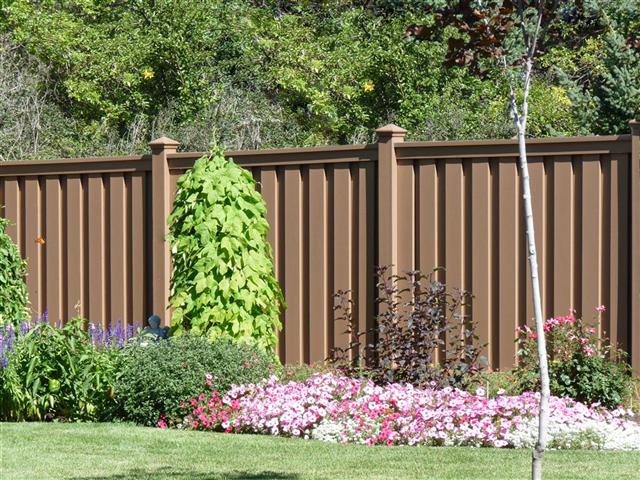All Categories
Featured

When setting up a fence, selecting the ideal product is essential to balancing capability, visual appeals, and spending plan. Wood, vinyl, and light weight aluminum are among one of the most commonly picked fence products, each with its drawbacks and strengths. This overview explores the advantages and disadvantages of these choices to aid you make a notified decision.

Wood Secure Fencing. Pros:. Natural Beauty: Wood's timeless beauty can improve any kind of residential property with its cozy and classic look. Adjustable: You can paint, tarnish, or carve wood to fit your style preferences. Affordable: Timber fence is at first much more budget-friendly contrasted to some various other materials. Environmentally Friendly: As an eco-friendly source, timber is biodegradable and usually taken into consideration environmentally friendly. Cons:. Maintenance-Intensive: Normal sealing, painting, or discoloration is called for to prevent damage from climate and bugs. Prone to Decay: Without correct treatment, wood can rot, warp, or fracture over time. Much shorter Life-span: On standard, timber fencings last 10-15 years, depending upon the sort of timber and maintenance. Wood is a fantastic option for those who value appearances and are ready to spend in routine upkeep to preserve its appearance and durability.
Plastic Fence. Pros:. Low Upkeep: Plastic requires very little treatment-- simply periodic cleansing with soap and water. Weather condition Resistant: It does not warp, rot, or catch insect damage, making it extremely long lasting in various environments. Long life: Vinyl fences can last 20-30 years with little to no repairs. Style Selection: Available in a variety of styles, colors, and textures, including wood-like looks. Disadvantages:. Greater Initial Price: Vinyl fencings are more costly in advance contrasted to wood. Vulnerability to Cold: In extremely winter, plastic can come to be brittle and susceptible to splitting. Minimal Fixing Options: Matching replacement panels can be challenging if damage occurs. Vinyl fence is ideal for property owners searching for a resilient, low-maintenance solution that provides modern-day versatility.

Light Weight Aluminum Fencing. Pros:. Rust-Proof: Aluminum withstands corrosion, making it an outstanding option for wet or moist atmospheres. Sturdy: In spite of being lightweight, aluminum is solid and can withstand severe climate condition. Reduced Upkeep: It calls for minimal maintenance, generally only occasional cleaning. Long Life expectancy: Aluminum fencings can last decades without substantial deterioration. Sophisticated Style: Frequently made use of for ornamental functions, aluminum fence adds a streamlined, advanced want to properties. Disadvantages:. High First Investment: Light weight aluminum fencings are amongst the more expensive choices on the market. Less Personal privacy: The open styles common with light weight aluminum fence don't supply much personal privacy. Susceptible to Damages: While resilient, aluminum can dent if hit with enough pressure. Light weight aluminum is a superb selection for house owners prioritizing looks and sturdiness without calling for much maintenance.
Making Your Decision. When deciding between light weight aluminum, plastic, or wood fence, consider your priorities:
Timber suits those who appreciate an all-natural appearance and don't mind placing in maintenance effort. Plastic is the finest choice for those seeking a low-maintenance, weather-resistant remedy. Aluminum offers sleek design and resilient longevity yet might lack personal privacy. By thoroughly examining these products' features, you can pick a fence that complements your residential or commercial property while meeting your visual and functional requirements.
Latest Posts
Top-Quality Auto Repair Locally - Trust Montclare’s Certified Professionals
Published Apr 19, 25
2 min read
Change Your Home with Quality Flooring Solutions
Published Apr 18, 25
1 min read
Full Circle Strategic Marketing - Boost Business Leads with Custom Marketing Solutions
Published Apr 18, 25
2 min read
More
Latest Posts
Top-Quality Auto Repair Locally - Trust Montclare’s Certified Professionals
Published Apr 19, 25
2 min read
Change Your Home with Quality Flooring Solutions
Published Apr 18, 25
1 min read
Full Circle Strategic Marketing - Boost Business Leads with Custom Marketing Solutions
Published Apr 18, 25
2 min read